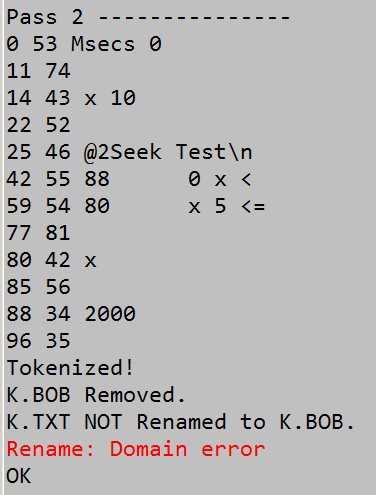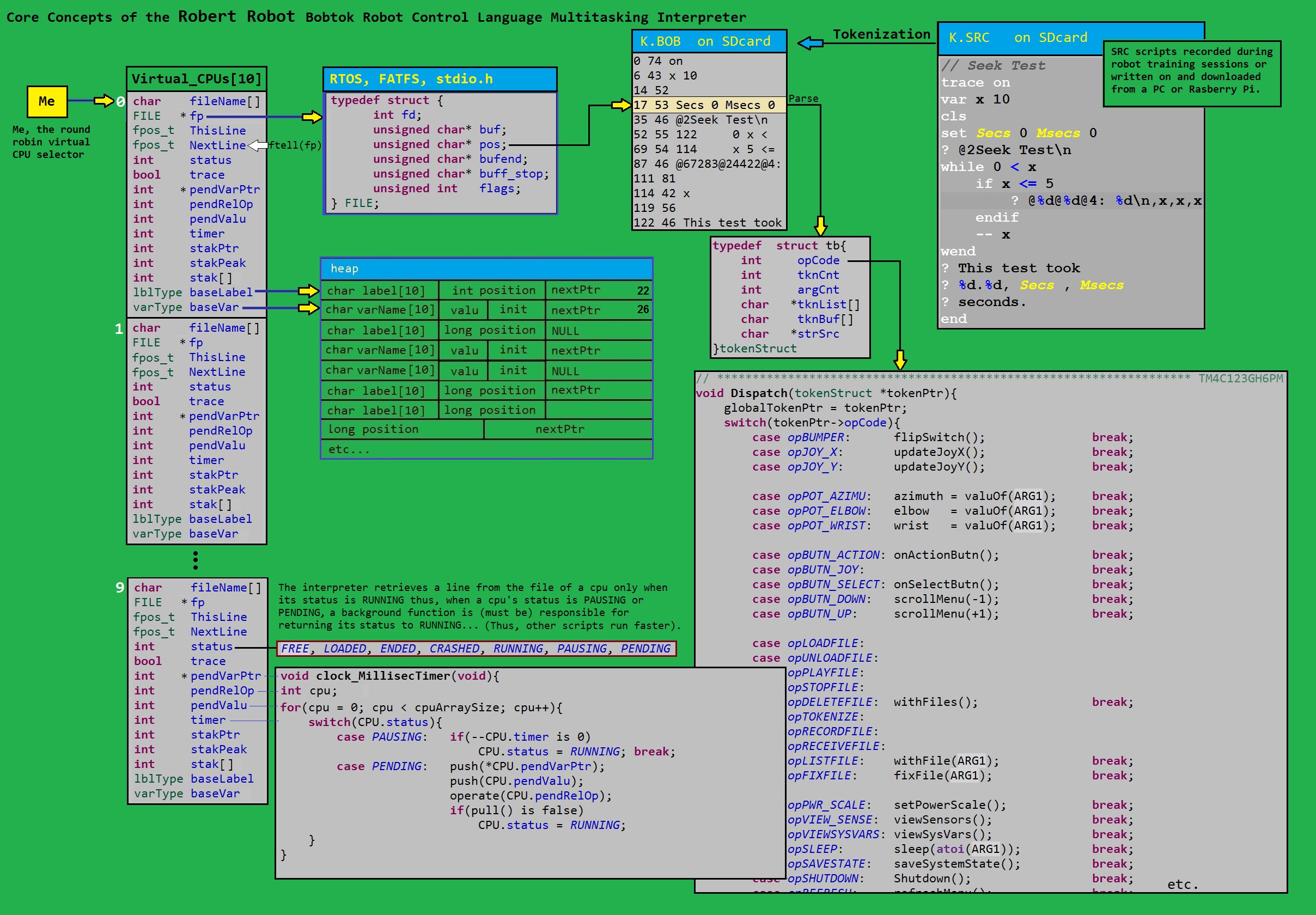Other Parts Discussed in Thread: SYSBIOS
Tool/software: TI-RTOS
Rename(old, new) used to work but I've done something and now it doesn't.
I've tried naked files and this...
Results...
ffconf.h looks like this...
/*---------------------------------------------------------------------------/
/ FatFs - FAT file system module configuration file R0.08a (C)ChaN, 2010
/----------------------------------------------------------------------------/
/
/ CAUTION! Do not forget to make clean the project after any changes to
/ the configuration options.
/
/----------------------------------------------------------------------------*/
#ifndef _FFCONF
#define _FFCONF 8255 /* Revision ID */
/*---------------------------------------------------------------------------/
/ Function and Buffer Configurations
/----------------------------------------------------------------------------*/
#define _FS_TINY 0 /* 0:Normal or 1:Tiny */
/* When _FS_TINY is set to 1, FatFs uses the sector buffer in the file system
/ object instead of the sector buffer in the individual file object for file
/ data transfer. This reduces memory consumption 512 bytes each file object. */
#define _FS_READONLY 0 /* 0:Read/Write or 1:Read only */
/* Setting _FS_READONLY to 1 defines read only configuration. This removes
/ writing functions, f_write, f_sync, f_unlink, f_mkdir, f_chmod, f_rename,
/ f_truncate and useless f_getfree. */
#define _FS_MINIMIZE 0 /* 0 to 3 !!was 0 */
/* The _FS_MINIMIZE option defines minimization level to remove some functions.
/
/ 0: Full function.
/ 1: f_stat, f_getfree, f_unlink, f_mkdir, f_chmod, f_truncate and f_rename
/ are removed.
/ 2: f_opendir and f_readdir are removed in addition to 1.
/ 3: f_lseek is removed in addition to 2.
*/
#define _USE_STRFUNC 0 /* 0:Disable or 1/2:Enable */
/* To enable string functions, set _USE_STRFUNC to 1 or 2. */
#define _USE_MKFS 0 /* 0:Disable or 1:Enable !!was 1 */
/* To enable f_mkfs function, set _USE_MKFS to 1 and set _FS_READONLY to 0 */
#define _USE_FORWARD 0 /* 0:Disable or 1:Enable */
/* To enable f_forward function, set _USE_FORWARD to 1 and set _FS_TINY to 1. */
#define _USE_FASTSEEK 0 /* 0:Disable or 1:Enable */
/* To enable fast seek feature, set _USE_FASTSEEK to 1. */
/*---------------------------------------------------------------------------/
/ Locale and Namespace Configurations
/----------------------------------------------------------------------------*/
#define _CODE_PAGE 932
/* The _CODE_PAGE specifies the OEM code page to be used on the target system.
/ Incorrect setting of the code page can cause a file open failure.
/
/ 932 - Japanese Shift-JIS (DBCS, OEM, Windows)
/ 936 - Simplified Chinese GBK (DBCS, OEM, Windows)
/ 949 - Korean (DBCS, OEM, Windows)
/ 950 - Traditional Chinese Big5 (DBCS, OEM, Windows)
/ 1250 - Central Europe (Windows)
/ 1251 - Cyrillic (Windows)
/ 1252 - Latin 1 (Windows)
/ 1253 - Greek (Windows)
/ 1254 - Turkish (Windows)
/ 1255 - Hebrew (Windows)
/ 1256 - Arabic (Windows)
/ 1257 - Baltic (Windows)
/ 1258 - Vietnam (OEM, Windows)
/ 437 - U.S. (OEM)
/ 720 - Arabic (OEM)
/ 737 - Greek (OEM)
/ 775 - Baltic (OEM)
/ 850 - Multilingual Latin 1 (OEM)
/ 858 - Multilingual Latin 1 + Euro (OEM)
/ 852 - Latin 2 (OEM)
/ 855 - Cyrillic (OEM)
/ 866 - Russian (OEM)
/ 857 - Turkish (OEM)
/ 862 - Hebrew (OEM)
/ 874 - Thai (OEM, Windows)
/ 1 - ASCII only (Valid for non LFN cfg.)
*/
#define _USE_LFN 0 /* 0 to 3 */
#define _MAX_LFN 255 /* Maximum LFN length to handle (12 to 255) */
/* The _USE_LFN option switches the LFN support.
/
/ 0: Disable LFN feature. _MAX_LFN and _LFN_UNICODE have no effect.
/ 1: Enable LFN with static working buffer on the BSS. Always NOT reentrant.
/ 2: Enable LFN with dynamic working buffer on the STACK.
/ 3: Enable LFN with dynamic working buffer on the HEAP.
/
/ The LFN working buffer occupies (_MAX_LFN + 1) * 2 bytes. To enable LFN,
/ Unicode handling functions ff_convert() and ff_wtoupper() must be added
/ to the project. When enable to use heap, memory control functions
/ ff_memalloc() and ff_memfree() must be added to the project. */
#define _LFN_UNICODE 0 /* 0:ANSI/OEM or 1:Unicode */
/* To switch the character code set on FatFs API to Unicode,
/ enable LFN feature and set _LFN_UNICODE to 1. */
#define _FS_RPATH 0 /* 0 to 2 */
/* The _FS_RPATH option configures relative path feature.
/
/ 0: Disable relative path feature and remove related functions.
/ 1: Enable relative path. f_chdrive() and f_chdir() are available.
/ 2: f_getcwd() is available in addition to 1.
/
/ Note that output of the f_readdir fnction is affected by this option. */
/*---------------------------------------------------------------------------/
/ Physical Drive Configurations
/----------------------------------------------------------------------------*/
#define _VOLUMES 1
/* Number of volumes (logical drives) to be used. !!was 4 */
#define _MAX_SS 512 /* 512, 1024, 2048 or 4096 */
/* Maximum sector size to be handled.
/ Always set 512 for memory card and hard disk but a larger value may be
/ required for floppy disk (512/1024) and optical disk (512/2048).
/ When _MAX_SS is larger than 512, GET_SECTOR_SIZE command must be implememted
/ to the disk_ioctl function. */
#define _MULTI_PARTITION 0 /* 0:Single partition or 1:Multiple partition */
/* When set to 0, each volume is bound to the same physical drive number and
/ it can mount only first primaly partition. When it is set to 1, each volume
/ is tied to the partitions listed in VolToPart[]. */
#define _USE_ERASE 0 /* 0:Disable or 1:Enable */
/* To enable sector erase feature, set _USE_ERASE to 1. */
/*---------------------------------------------------------------------------/
/ System Configurations
/----------------------------------------------------------------------------*/
#define _WORD_ACCESS 0 /* 0 or 1 */
/* Set 0 first and it is always compatible with all platforms. The _WORD_ACCESS
/ option defines which access method is used to the word data on the FAT volume.
/
/ 0: Byte-by-byte access.
/ 1: Word access. Do not choose this unless following condition is met.
/
/ When the byte order on the memory is big-endian or address miss-aligned word
/ access results incorrect behavior, the _WORD_ACCESS must be set to 0.
/ If it is not the case, the value can also be set to 1 to improve the
/ performance and code size. */
/* Include a header file here to define sync object types on the O/S */
/* #include <windows.h>, <ucos_ii.h.h>, <semphr.h> or ohters. */
#define _FS_REENTRANT 0 /* 0:Disable or 1:Enable */
#define _FS_TIMEOUT 1000 /* Timeout period in unit of time ticks */
#define _SYNC_t void * /* O/S dependent type of sync object. e.g. HANDLE, OS_EVENT*, ID and etc.. */
/* The _FS_REENTRANT option switches the reentrancy of the FatFs module.
/
/ 0: Disable reentrancy. _SYNC_t and _FS_TIMEOUT have no effect.
/ 1: Enable reentrancy. Also user provided synchronization handlers,
/ ff_req_grant, ff_rel_grant, ff_del_syncobj and ff_cre_syncobj
/ function must be added to the project. */
#define _FS_SHARE 0 /* 0:Disable or >=1:Enable */
/* To enable file shareing feature, set _FS_SHARE to 1 or greater. The value
defines how many files can be opened simultaneously. */
#endif /* _FFCONFIG */
Your help always greatly appreciated.
Cheers,
Dave





